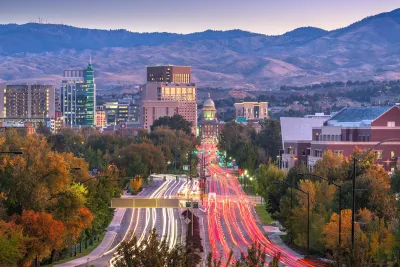Over 21 percent of clients struggle with transportation barriers.

A survey conducted by an Idaho homelessness prevention agency is drawing a link between unexpected vehicle repairs and the risk of eviction, the Idaho Capital Sun reports.
The survey, which polled over 750 of the agency’s clients in Ada and Canyon counties, showed that more than 21 percent of the clients struggle with transportation barriers. Unexpected vehicle expenses were cited in the survey as a common factor in the kinds of household financial crisis that lead to eviction risk.
“For the majority, having reliable transportation is crucial to keeping stable employment. Public transit might not be reliable due to an individual’s working hours or job location. If a vehicle suddenly breaks down and cannot be repaired quickly, that can cause someone to miss work, leading to a loss of income and increased financial strain,” writes Katie Amiden for the Capital Sun. The article states that the average emergency vehicle repair expense is around $1000.
FULL STORY: How an unexpected vehicle expense can lead to housing instability, eviction risks

Trump Administration Could Effectively End Housing Voucher Program
Federal officials are eyeing major cuts to the Section 8 program that helps millions of low-income households pay rent.

Planetizen Federal Action Tracker
A weekly monitor of how Trump’s orders and actions are impacting planners and planning in America.

Ken Jennings Launches Transit Web Series
The Jeopardy champ wants you to ride public transit.

Rebuilding Smarter: How LA County Is Guiding Fire-Ravaged Communities Toward Resilience
Los Angeles County is leading a coordinated effort to help fire-impacted communities rebuild with resilience by providing recovery resources, promoting fire-wise design, and aligning reconstruction with broader sustainability and climate goals.

When Borders Blur: Regional Collaboration in Action
As regional challenges outgrow city boundaries, “When Borders Blur” explores how cross-jurisdictional collaboration can drive smarter, more resilient urban planning, sharing real-world lessons from thriving partnerships across North America.

Philadelphia Is Expanding its Network of Roundabouts
Roundabouts are widely shown to decrease traffic speed, reduce congestion, and improve efficiency.
Urban Design for Planners 1: Software Tools
This six-course series explores essential urban design concepts using open source software and equips planners with the tools they need to participate fully in the urban design process.
Planning for Universal Design
Learn the tools for implementing Universal Design in planning regulations.
Ada County Highway District
Clanton & Associates, Inc.
Jessamine County Fiscal Court
Institute for Housing and Urban Development Studies (IHS)
City of Grandview
Harvard GSD Executive Education
Toledo-Lucas County Plan Commissions
Salt Lake City
NYU Wagner Graduate School of Public Service





























